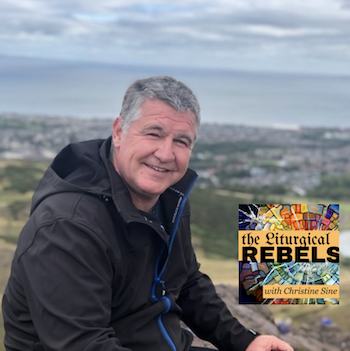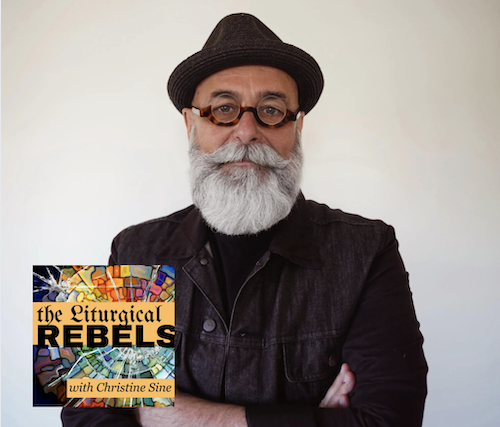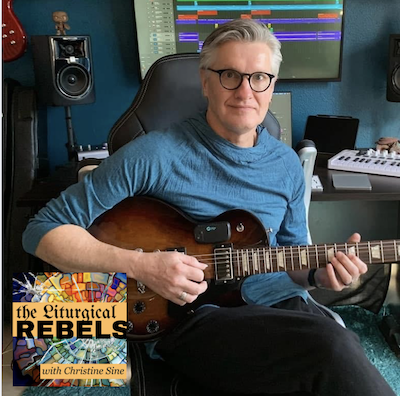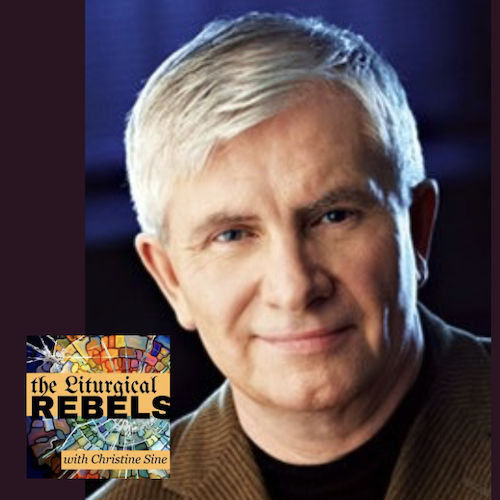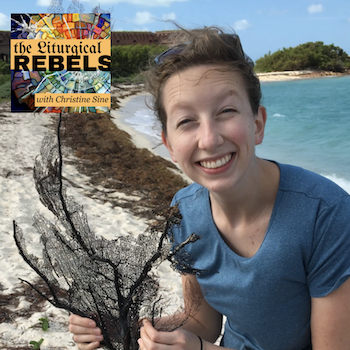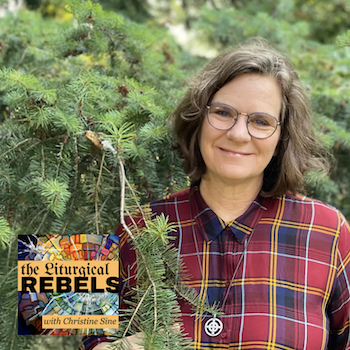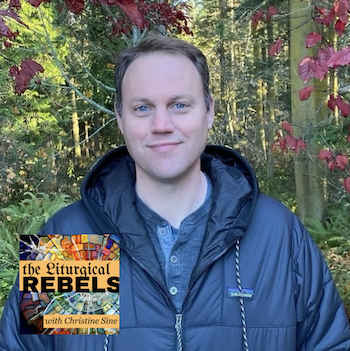In this conversation, Christine Sine interviews Ash Barker about his journey with Urban Neighbours of Hope, exploring themes of community development, cultural transitions, and the importance of empowering local talent. They discuss the challenges and rewards of working in diverse environments, the impact of family dynamics on community work, and the significance of participatory church models. Ash shares inspiring stories, including that of Poo, a local chef who transformed her life through community support. The conversation also touches on the role of spiritual practices, the challenges of chronic illness, and the power of storytelling in reimagining communities. Ultimately, Ash emphasizes the importance of Jesus’ model of empowerment and the need for humor and community in ministry.
Takeaways
- Cultural transitions can shape community development approaches.
- Empowering local talent leads to sustainable change.
- Family dynamics play a crucial role in community work.
- Leadership transitions can open new opportunities for growth.
- The seedbed vision emphasizes cultivating local leaders.
- Participatory church models foster community engagement.
- Spiritual practices help in paying attention to community needs.
- Chronic illness can impact community work but also provide insights.
- Storytelling is vital in reimagining communities.
Husband to a force of nature (Anji) and Dad to two amazing young people (Amy and Aiden), Ash has spent over 30 years living and serving on the front line of urban poverty and has a passion to release the unique potential of urban people and places. Since 2014, the Barkers have been based in Winson Green, inner city Birmingham, UK. They founded Newbigin House which started two new local congregations as well as innovative organisations such as Newbigin Community Trust (NewbiginTrust.uk), Red Letter Christians UK (RedLetterChristians.org.uk) and Urban Shalom Society (UrbanShalomSociety.org). Ash and Anji are also United Reformed Church Ministers of Lodge Road Community Church in Winson Green with Anji also leading Newbigin Community Trust. A strategic focus for Ash is leading Seedbeds (the public name for Newbigin School for Urban Leadership). Through responsive, practical and innovative programmes, Seedbeds grows local leaders and communities into fullness of life, believing that every local community can flourish, but few neighbourhoods realise their unique potential. Seedbeds equips local people and places to discover, connect and release their unique potential together from the inside out.
More information about Ash Barker can be found at
In this conversation with Christine, Mike Frost shares his journey from a conventional upbringing to becoming an advocate for social justice and a voice in the church. He discusses the importance of understanding the intersection of faith and activism, the role of Australians in global conversations, and the impact of his work, particularly the book ‘The Shaping of Things to Come‘. Mike emphasizes the need for the church to embrace eccentricity and adapt its mission to the context of modern society, drawing on historical examples of transformative figures like Alice Sealy Harris.
Takeaways
- Mike’s upbringing in a socially conscious family shaped his commitment to social justice but there was a disconnect between his faith and activism.
- The church’s role in social justice is increasingly recognized among younger generations.
- Cultural perspectives influence how social justice is approached in different communities.
- Australians have a unique voice in global church conversations.
- The book ‘The Shaping of Things to Come’ emerged from a personal journey of renewal.
- Eccentricity in Christianity is essential for fostering inclusive communities.
- Mission should adapt to the context in which it is practiced.
- Historical examples of advocacy can inspire modern mission work.
- Embracing new shapes in mission is crucial for relevance in today’s society.
Michael Frost is an internationally recognized Australian missiologist and one of the leading voices in the missional church movement. Since 1999, Dr Frost has been the founding director of the Tinsley Institute, a mission study centre located at Morling College in Sydney, Australia. He is the author or editor of nineteen theological books, the best known of which are the popular and award-winning, The Shaping of Things to Come (2003), Exiles (2006), The Road to Missional (2011) and Surprise the World! (2016). Frost’s work has been translated into German, Korean, Swedish, Portuguese and Spanish.
He was one of the founders of the Forge Mission Training Network and the founder of the missional Christian community, smallboatbigsea, based in Manly in Sydney’s north. He is also well known for his protests against Australia’s treatment of refugees, some of which have resulted in his arrest by the NSW police, as well as his advocacy for racial reconciliation, foreign aid, and gender equality.
You can find out more about Mike Frost at https://mikefrost.net.
As an Amazon Associate I receive a small amount for purchases made through appropriate links. Thank you for supporting Godspace in this way
In this conversation, Christine Sine and John van de Laar explore John’s journey of faith, identity, and the transformative power of liturgy. They discuss the challenges of navigating faith as an autistic individual, the importance of engaging with liturgy in a meaningful way, and the reinterpretation of the Book of Revelation in contemporary contexts. John’s experiences highlight the intersection of personal faith, community, and the evolving understanding of spirituality.
Takeaways
- Liturgy plays a crucial role in personal transformation.
- Liturgy should engage all senses.
- Revelation can be understood as a timeless message embedded in a message fully shaped by its moment in history.
- The church calendar can be adapted for Southern Hemisphere contexts.
- Faith communities can be both inclusive and challenging for autistic individuals.
- John emphasizes the need for honesty in faith expressions.
John Van de Laar is a progressive, autistic writer, musician, theologian, and liturgist who loves exploring life, Jesus the Christ, the Bible, liturgy, and worship (in the broadest sense) from the perspective of evolutionary spirituality. John is the author of three books, including The Hour That Changes Everything, and writes at Sacredise Your Life! on Substack (https://sacredise.substack.com/publish/home). John lives outside of Johannesburg, South Africa, with his wife Debbie. They have two adult sons.
As an Amazon Associate I receive a small amount for purchases made through appropriate links. Thank you for supporting Godspace in this way
In this conversation with Christine,
Alan Roxburgh shares his transformative journey of faith, beginning from his working-class roots in Liverpool to his current life in Canada. He discusses the evolution of missional living, emphasizing the importance of relationality and community over traditional church practices. Alan highlights the need for churches to shift their focus from programs to genuine relationships, addressing the loneliness and isolation prevalent in modern society. He advocates for simple, everyday practices that foster connection with God and others, while navigating the complexities of a changing world.
Takeaways
- Experiencing love for the first time led Alan to Christianity.
- Missional living is about being present, not programs.
- Communities centered around God can address societal loneliness.
- Eating together fosters community and connection.
- Our people are not our projects; they are loved by God.
- Shifting focus from church growth to relationality is crucial.
- Practices like dwelling in scripture help build community.
- Asking new questions is more important than finding answers.
- Simplicity in faith practices can lead to deeper engagement.
Alan J. Roxburgh a pastor, seminary professor, and mentor in leadership and missional transformation, who has written thirteen books on missional leadership and culture change. In his work he addresses questions of church and mission, convinced the Spirit is fermenting a movement of God’s people that can’t be contained in narratives of renewal, reform, or fixing existing systems. Alan was born in Liverpool England but now live in British Columbia Canada. When not traveling or writing, Alan enjoys mountain biking, hiking, cooking and hanging out with Jane and their five grandchildren as well as drinking great coffee in the Pacific North West.
Alan can be found at TMN | Journal | Missional Commons
YouTube | Blog | Books | Twitter | Facebook
In this conversation, Christine Sine and Rachel G. Jordan explore the intersection of marine biology, faith, and environmental conservation. They discuss personal journeys into marine science, the challenges faced by women in the field, and the importance of biodiversity in ecosystems. The conversation also highlights the threats to coral reefs and practical steps individuals can take to contribute to conservation efforts, emphasizing the role of faith in understanding and responding to environmental issues.
Takeaways
- Rachel’s journey into marine biology was inspired by childhood experiences in tide pools.
- The wonder found in studying the natural world scientifically deepens faith.
- The scientific community has been curious about Rachel’s faith and open to her experiences, offering deep conversations.
- In Rachel’s experience, women in marine science are increasingly supported within the scientific community.
- Biodiversity is crucial for ecosystem resilience and stability.
- The natural world is a manifestation of what God values. Its diverse, interconnected design shows us God’s plan for what to value and how to thrive.
- Coral reefs face significant threats from climate change and human activity.
- Coral bleaching is an existential crisis caused by rising ocean temperatures.
- Practical actions, like reducing plastic use, can help protect marine ecosystems.
- Understanding the interconnectedness of ecosystems is vital for conservation efforts.
Rachel G. Jordan is a professional marine biologist and lay theologian. A self-
professed Jesus-loving coral nerd, she was raised in Idaho and has since traveled the globe chasing her passion for faith and science. She has an MS in marine biology and ecology from James Cook University (Australia), a BS in ecology from Seattle Pacific University (USA), and a certification in biblical studies from Bodenseehof Bible School (Germany). In addition to working as a coral biologist for the US National Park Service, Rachel has worked in marine aquaculture research, organic chemistry laboratories, veterinary research facilities, the pet industry, and a museum. When not diving or writing, she can be found reading C.S. Lewis, growing wildflowers, and exploring creation with her husband.
Rachel Jordan can be found on Instagram @shorelinesoul or at rachelgjordan.com
In this conversation, Christine Sine and Victoria Loorz explore the intersection of faith and ecology, discussing Victoria’s journey from a corporate career to becoming a leader in the Wild Church movement. They delve into the importance of connecting spirituality with nature, the emergence of the Wild Church Network, and the significance of sacred conversations with the natural world. Victoria shares insights from her work with the Seminary of the Wild, emphasizing the need for intentional practices to foster a deeper relationship with the earth and each other. This conversation explores the deep connections between nature, spirituality, and community and addresses the importance of rewilding both the land and the soul. Victoria and Christine emphasize the need for storytelling in fostering a deeper relationship with the natural world. The dialogue highlights the interconnectedness of health, biodiversity, and spirituality, advocating for a holistic approach to living in harmony with nature. The concept of a ‘wild God’ is introduced as a call to action for individuals to engage more fully in the miraculous dance of life, ultimately leading to a rewilding of the church and spiritual practices.
Takeaways
- Victoria Loorz emphasizes the importance of connecting faith with nature and the spiritual implications of climate change.
- The Wild Church Network was founded to create a space for worship in nature, recognizing the earth’s inherent holiness.
- Sacred conversations with nature are deeply important.
- The Field Guide to Church of the Wild serves as a resource for those looking to start their own gatherings in nature.
- The practice of wandering in nature allows individuals to connect with the divine and their surroundings.
- Community and shared experiences are crucial for understanding spirituality.
- The Seminary of the Wild focuses on deepening relationships with the natural world and fostering conversations with it.
- Victoria discusses the concept of sacred reciprocity and how it relates to our connection with nature.
- Intentional practices are necessary to reconnect with the earth and each other.
- Storytelling and community engagement are crucial for successful rewilding efforts.
- Rewilding involves restoring both land and spiritual practices.
- A healthy ecosystem reflects the importance of diversity.
- The concept of a ‘wild God’ encourages deeper participation in life.
- Unlearning disconnection is a vital part of spiritual development.
Victoria Loorz, MDiv, is a wild church pastor, an eco-spiritual director and co-founder of several transformation-focused organizations focused on the integration of nature and spirituality. After twenty years as a pastor of indoor churches, she launched the first Church of the Wild, in Ojai CA and began to meet others with the same sense of call to leave building and expand the Beloved Community beyond our own species. She then co-founded the ecumenical Wild Church Network.
Victoria is co-founder and director of Seminary of the Wild, which is focused on a deep-dive yearlong Eco-Ministry Certificate program for all those who feel called by Earth and Spirit to “restore the great conversation.” (Thomas Berry) She has two books about Wild Church – Church of the Wild and Field Guide to Church of the Wild.
Victoria Loorz can be found on her website: https://www.victorialoorz.com
In this conversation, Christine Sine and her husband, Tom Sine, interview James Amadon about the evolution of Circlewood, an ecological ministry on Camano Island, and the journey that led James to take on leadership. They explore the integration of ecology and faith, the history of the land, and the vision for future development, including educational programs and community partnerships. The dialogue emphasizes the importance of hope and the need for new paradigms in pastoral leadership to address ecological challenges.
Takeaways
- A new paradigm of pastoral leadership is needed to address ecological crises.
- Circlewood aims to create spaces for transformative experiences.
- Celtic spirituality and ecological awareness are foundational to Circlewood’s work.
- Educational programs are being developed to foster ecological discipleship.
- Partnerships with local organizations enhance community engagement.
- The work of Circlewood is about serving the common good.
- Hope is essential in navigating the challenges of our time.
James Amadon was raised in the Great North Woods of New Hampshire, but has called the Pacific Northwest home since 2007. His desire to integrate faith and ecology led him to start Circlewood in 2017. As the Executive Director of Circlewood, James guides the mission to “accelerate the greening of faith” through creative and global media, including the Earthkeepers podcast and The Ecological Disciple online journal, immersive education like The Journey of Ecological Discipleship leadership cohort, and the development of Circlewood Village, a sustainable learning center on Camano Island. James is ordained in the Covenant Church, and pastored in churches for 15 years. He has a BA from Gordon College, an MDiv from North Park Theological Seminary, and a DMin from Duke Divinity School, where he focused his work on developing a framework for Ecological Christian Leadership (ECL).
James can be found at:
As an Amazon Associate, I receive a small amount for purchases made through appropriate links.
Thank you for supporting Godspace in this way.
When referencing or quoting Godspace Light, please be sure to include the Author (Christine Sine unless otherwise noted), the Title of the article or resource, the Source link where appropriate, and ©Godspacelight.com. Thank you!

